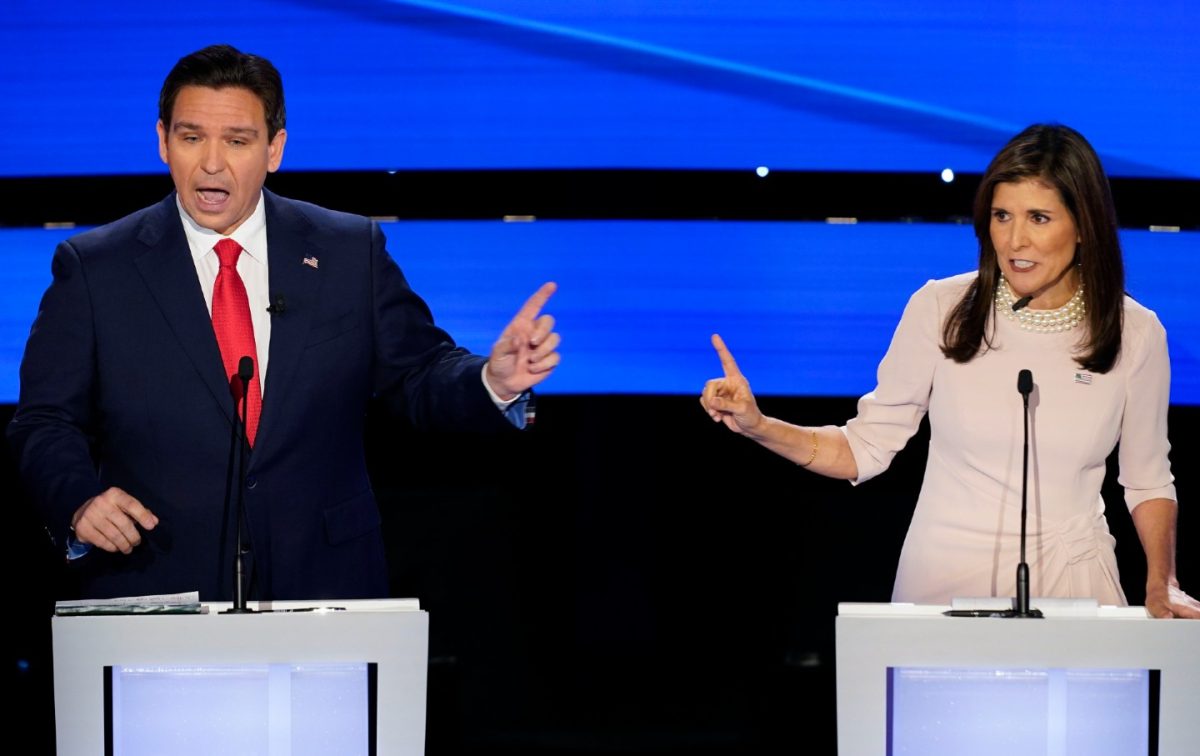On Jan. 10, the last Republican debate at the 2024 Iowa caucus took place. The only participants in the debate were Nikki Haley and Ron DeSantis as Vivek Ramaswamy failed to qualify for the debate. Meanwhile, Donald Trump opted to host a Town Hall event on Fox News.
The Jan. 10 Republican debate mirrored previous debates in many ways. From the economy, social issues, immigration and foreign policy, the questions posed to candidates were similar and the candidate responses were predictable.
One unique topic brought up in the debate was mental health. Historically, the topic of mental health has been sparsely discussed by Republican Party candidates. This may be because mental health issues are commonly used as a counter to the gun control movement.
During the debate, the language around mental health felt like some candidates had a genuine personal conviction about mental health. What felt like a positive change in rhetoric became mirky after listening to each candidate’s response.
“We don’t have enough mental health therapists, we don’t have enough mental health treatment centers and we don’t have enough addiction centers, and if you happen to be lucky enough to get one of those three, health insurance doesn’t cover it,” Haley said.
Haley’s speech argues that the main issues with mental healthcare are a lack of facilities, professionals and affordability.
“Yes we need more people in institutionalized settings, unfortunately, ” DeSantis said in response to a question about restoring federal funding to mental health institutions that were shut down and defunded under Ronald Reagan’s administration.
DeSantis did not clarify which people he believes should be institutionalized nor does he specify whether he would improve funding, oversight and update institution policy to be more in line with modern standards of dealing with mental health issues.
The U.S. state mental health institutions were mostly closed after the loss of funding available under the Mental Health Systems Act, which was repealed under the Reagan administration in 1981.
These mental health institutions were inhumane due to the substandard living conditions of patients and the procedures committed against the patients which were harmful and ineffective.
The candidates seemed to blame the nation’s mental health problems on the COVID-19 lockdowns.
Another big issue that both candidates failed to commit to addressing was climate change. Both candidates spent their time pointing fingers at other countries such as China and India for their emissions while giving no indication that they believe that climate change is a problem.
Both candidates made some commitment to ending climate policies enacted by the Biden administration, with a vague statement that the need for innovation supersedes initiatives addressing climate change.
One last noteworthy moment from the debate was on the issue of the war in Gaza. CNN anchor Jake Tapper asked DeSantis to clarify if DeSantis supports the mass removal of Palestinians from Gaza.
“As president, I’m not going to tell them to do that, I think there’s a lot of issues with that. But if they make the calculation that to avert a second Holocaust they need to do that. I think some of these Palestinian Arabs, Saudi Arabia should take some, Egypt should take some. They’ve never been willing to accept any of these folks in their own neighborhood,” DeSantis said.
What is being described by Tapper is called ethnic cleansing, the violent removal of an ethnic group by another group. DeSantis’s answer indicates that, as president, he would allow Israel to ethnically cleanse approximately 2 million people from Gaza.









